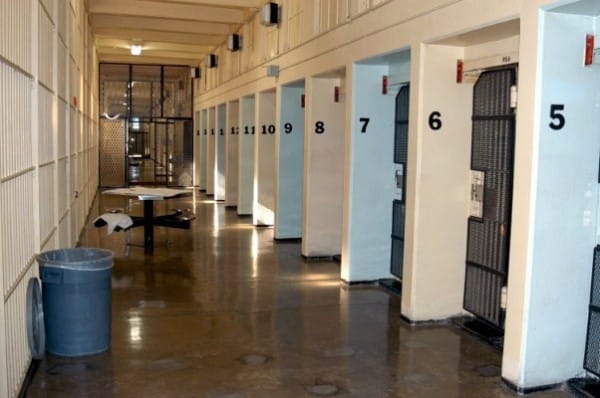California Proposition 34: Death Penalty Repeal Initiative

San Quentin death row. Credit: vote29.com

Should those convicted of murder in California continue to be executed or should they given life imprisonment without possibility of parole? Proponents of Prop 34 favor repealing the death penalty. Opponents favor keeping it. The California Proposition 34 death penalty repeal initiative is one of the most visible and controversial propositions on the ballot in November.
In addition to strongly-held views about the death penalty, much of the controversy centers on whether it costs the State of California less to house these inmates for life than it does to execute them, given often lengthy and expensive death penalty appeals. The non-partisan Legislative Analyst's Office says repealing the death penalty will save about $100 million a year at first and $130 million a year thereafter. Perhaps not unsurprisingly, the Yes on 34 campaign agrees with this estimate. The No on 34 campaign strongly disagrees, saying the data is biased.
- Repeals death penalty as maximum punishment for persons found guilty of murder and replaces it with life imprisonment without possibility of parole.
- Applies retroactively to persons already sentenced to death.
- States that persons found guilty of murder must work while in prison as prescribed by the Department of Corrections and Rehabilitation, with their wages subject to deductions to be applied to any victim restitution fines or orders against them.
- Directs $100 million to law enforcement agencies for investigations of homicide and rape cases.
Prop 34 is retroactive. If passed, then approximately 725 California inmates currently on death row would be re-sentenced to life without parole. They are currently housed in single occupancy cells under special security and are usually handcuffed and escorted by one or two officers when outside their cells. With no death penalty, they would presumably be put back into the general prison population. Some of the estimated savings, $100 million total, would go to law enforcement for use in rape and murder cases.
No on 34 say "Mend it, don't end it." They favor adopting a single drug for executions because of continual appeals claiming the current 3-drug method is unconstitutional. They also want to fix the appeals process by constitutional amendment to speed it up, thus cutting costs and saving time.
Yes on 34 agrees that the death penalty in California is broken and advocate ending it. Those given the death penalty receive extra protections guaranteed by the US Constitution and backed by the US Supreme Court. Those receiving life without parole do not get the extra protections, which simplifies and speeds up trial and appeals.
Prop 34 is a hot button, highly emotional issue. Voters should read what both sides have to say.


